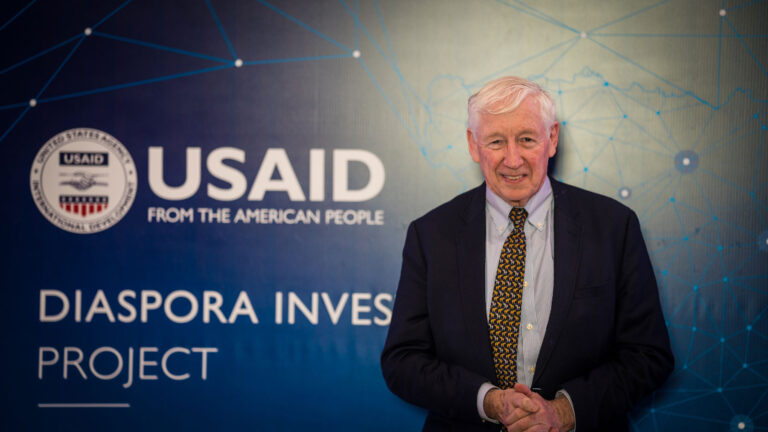Sarajevo is a city I’ve always known about for three reasons. First, it was the site of Archduke Franz Ferdinand’s assassination on June 28, 1914, which sparked the First World War. Second, it hosted the 1984 Winter Olympics, viewed by over two billion people worldwide. Lastly, Sarajevo endured one of the longest sieges in history: nearly four years and over fourteen thousand deaths.
Happily, Sarajevo is in a different place now. But one of the outcomes of its history is the number of Bosnians living outside of Bosnia and Herzegovina (BiH). Relative to its home country population, the BiH diaspora – at 2 million strong – is one of the largest diasporas in the world. Highly skilled, entrepreneurial and economically successful in their adopted countries, members of the BiH diaspora retain strong familial links and connections to their places of origin, as evidenced by the $1.8 billion in remittances they sent home in 2021 alone. The challenge now is to find innovative ways to channel new diaspora capital and expertise back into the country. The thinking then is to encourage and incentivise more of its successful and talented diaspora to help fuel economic development and inspire positive social change in communities throughout BiH.
So this brings me to why I was recently back in Sarajevo and giving the keynote speech at the launch of USAID’s five-year $15.7 million Diaspora Invest project. Having been involved with the previous USAID project in BiH I was in a position to comment on the potential for this next project. However, this is a project with a difference. Based on lessons learnt from their previous experience in BiH this USAID-funded project is all about fostering local community engagement with the BiH diaspora. It aims to catalyse diaspora investment and knowledge transfer to stimulate economic and social development but on a local, rather than a national, level. The idea here is to work on each local system holistically and engage all the local actors – local government units, civil society, local diaspora organisations, educational institutions and others. The key here will be establishing links between the BiH diaspora and local communities.
What is great about this project is the recognition of something we have been saying for a long time – diaspora capital is about 3 flows – flows of people, flows of knowledge and flows of money and diaspora engagement is not about connecting with a country but rather about connecting to a place. For example, remittances don’t go to a country – they go to a family. Remittances show up as national macro statistics but they operate as local micro-investments. The driving force behind all of this is a sense of ‘belonging’. We would argue, then, that this then is the key driver of engaging diasporas – responding to, facilitating and incentivising this sense of belonging. Diasporas engage with their home countries for many reasons but the core driving force is about ‘belonging’. They have a great desire to bring back to their home countries the values, approaches, methodologies and attitudes that have made them successful in their host countries. They are willing to not be put off by setbacks and challenges which would often deter non-diaspora investors. They have the expertise, contacts and financial resources that they are willing to put into action. In short, they represent a patriotic dividend.
This insightful USAID Diaspora Invest project in BiH has the potential to be a global template for DDI – Diaspora Direct Investment. Despite the name, it is about trade not aid and it is all built around developing sustainable investments that will grow and become local export engines for a revitalised Bosnian economy. Turning ‘lost actors’ into ‘national assets’ will become a triple win – for the diaspora, for BiH and for the US.



